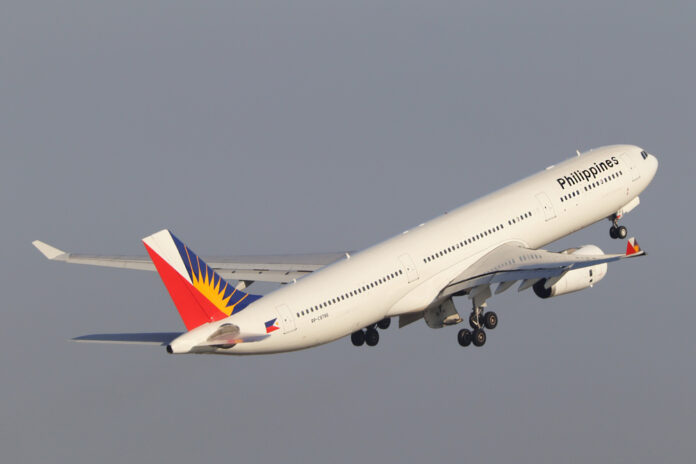PAL Holdings Inc, the parent firm Philippine Airlines (PAL) on Friday reported a 30 percent drop in net income in the first half this year due to higher operating expenses and fleet expansion even as the market normalizes following the revenge travel surge in 2023.
The company said comprehensive income amounted to P9.48 billion in the January to June period, lower than last year’s comprehensive income of P13.56 billion.
“Philippine Airlines remains on track in its transformative growth strategy as we deliver a more efficient airline offering quality service, to fulfill our mandate as the Philippines’ flag carrier and only full-service airline with the largest network,” said PAL Holdings Inc. president and chief operating officer Lucio K. Tan III.
PAL expanded flights by 11 percent and carried nearly eight million passengers across its international and domestic network, 13 percent more than the seven million in the same period last year.
It noted the expansion aligns with overall growth in air travel, with Manila’s Ninoy Aquino International Airport showing a 13-percent growth in passenger volume.
“As the industry adjusts to a re-balancing between demand and capacity, and continues to face cost challenges, we are implementing a disciplined investment plan to upgrade our fleet and continue our digital transformation so that we can serve our passengers better,” captain Stanley K. Ng, PAL president and chief operating officer said.
“We are happy to announce a milestone expansion of our Mabuhay Miles lifestyle program, having just breached the level of six million members,” he added.
PAL Holdings’ six-month consolidated revenue totaled P90.92 billion this year, 3.97 percent higher than last year’s P87.45 billion due to the increase in passenger and ancillary revenue.
Passenger revenue grew 2.05 percent to P79.84 billion from P78.24 billion in the same period last year. PAL Holdings traced the increase to the 12.45 percent increase in passenger volume, or 7.91 million passengers, from 7.03 million passengers in 2023, partially offset by decline in average fare per passenger.
Cargo revenue amounted to P4.12 billion, higher than last year’s P3.81 billion due to higher cargo volume.
Ancillary revenue grew 28.56 percent to P6.90 billion traced to higher volume of ticket rebooking and seat upgrades.
Other revenue this year increased to P0.06 billion from P0.03 billion in the same period in 2023.
This was attributable to lease income from aircraft lease arrangements with an entity under common control.
PAL Holdings’ consolidated operating expenses grew 14.96 percent to P80.3 billion from P69.85 billion last year. This was attributed to an increase in flights by 11.43 percent from 50,467 in 2023 to 56,237 in 2024.
Flying operations expenses in the first half amounted to P42.91 billion,13.09 percent higher than last year’s P37.94 billion.
The company said this was driven by the 7.10 percent increase in fuel consumption due the increase in the number of flights operated but partially offset by the decline in jet fuel prices from $99.27 per barrel in 2023 to $99.25 per barrel in 2024.
The incremental depreciation of four aircraft, of which three aircraft were delivered in the second half last year and one more aircraft in the first quarter this year also contributed to the rise in operational expenses.
Maintenance expenses rose 16.08 percent for the period from P9.98 billion last year. This was brought about by the increase in aircraft utilization relative to the higher number of flights and the effect of six quick-turn shop visits compared to 2023.
Aircraft and traffic servicing expenses increased 18.44 percent, higher than last year’s P7.69 billion due to the increase in number of flights operated in 2024, particularly ground handling charges and landing and take-off fees.







